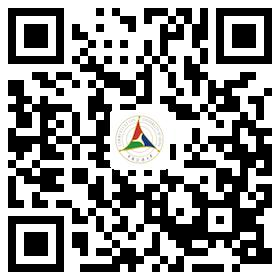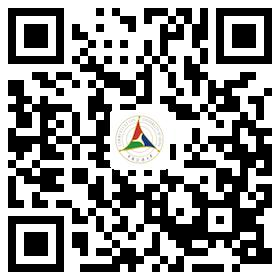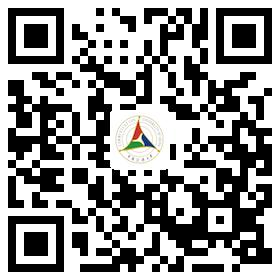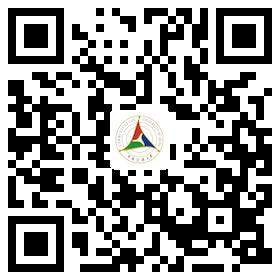A team of CUC School of Journalism won Gold Prize in 14th "Oriental Imagination" Global Chinese Radio Innovation Competition. The award ceremony was held in Shanghai on September 27 wherein the students from CUC School of Journalism exhibited their creation—a short audio collection Sound Library.
Founded in year 2000, the competition has successfully held thirteen sessions, and has already become a global Chinese-speaking broadcaster's brand. The theme for this year was "Short Audio," which accorded with the converging circumstance of media as a whole. By the end of July, the contest had received 581 entries from more than 200 units. Among them, 28 won awards and three achieved Gold Prize.
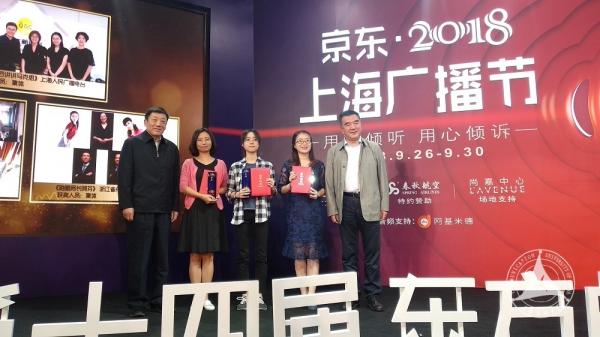
Award winning students posing for photo in the ceremony
As the only student participates winning the award in this competition, the team consisted of Wei Xueying, Li Ziqiao, Wu Meng, Zeng Xiaoqin, Qi Chaofan, and Gong Li, all of whom are senior students from Journalism School of CUC. Collecting and integrating user-supplied sound clips, the award-winning work Sound Library strived to build a platform using sound as a bridge to create a dedicated Sound Memory Bank.
The team first knew about the competition from the course named Global Radio & Television taught by Professor Zhang Cai. Professor Zhang also became the instructor of Sound Library afterward. Considering that people have been using photos, diaries and letters to record lives and express feelings, the team came up with the idea that sound could also be recorded and passed down. "We hope that this production will provide an entrance to the auditory memory, connecting people around, connecting the past and the future." Said Wu Meng, one of the creators, a senior student majored in Creative Media.
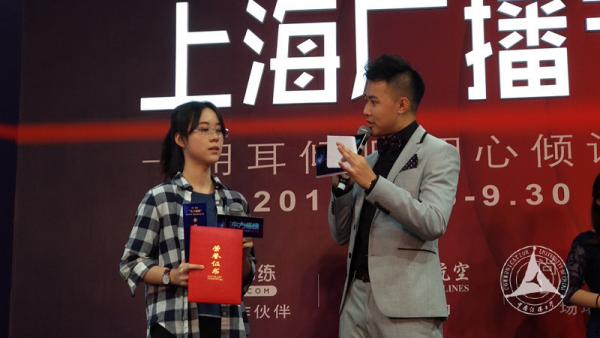
Wu Meng, one of the creators of the award-winning Sound Library representing her team at the award ceremony
The core concept of this work is "to express." One the one hand, it gives people a chance to communicate with the future. In this fast-paced world, people seldom slow down and try to appreciate some special moments while the sound records can help them recall their memories in the future. On the other hand, it can pass on to others. We may also have a lot of words to say to specific people, but for various reasons, face-to-face communication encounters many obstacles. Besides, we can share it with the public. "Many years later, all these stories become a 'sound memory' dedicated to individuals."
Sound Library has five parts, including the sound report, advertising, years of sound, slow delivery of sound and missing sound. Every team member was responsible for a certain part. During the preparations, they found it quite challenging to find suitable recording staff. They asked schoolmates, teachers and even the olds walking in the school for help. "The whole team showed particularly modest and rigorous professionalism throughout the competition. This is what I admire especially, and I think it’s a process of mutual learning," Professor Zhang, the instructor of Sound Library highly praised their efforts.
They felt surprised about the award they received. “We are very clear about the problems, such as the rhythm of the program is not strong enough, and there are so many very long stories, which may make listeners exhausted,” said one of the team members.
Since its establishment, Communication University of China has been maintaining its leading position in broadcasting research in the field of media. CUC was called Beijing Broadcasting Institute before 2004. Over the years, the School of Journalism in CUC has been insisting on a fundamental principle— vision field should be in sync with the latest developments in the world, concept should be synchronized with the latest theory, and the study should keep pace with the recent innovation in practice—during the research and teaching practice of broadcast news and audio productions. Pressor Zhang Cai said that because of the significance of experience in the media, they always encourage students to participate in various competitions.
Editor: Wang Huiyi, Arshad Bhatti







